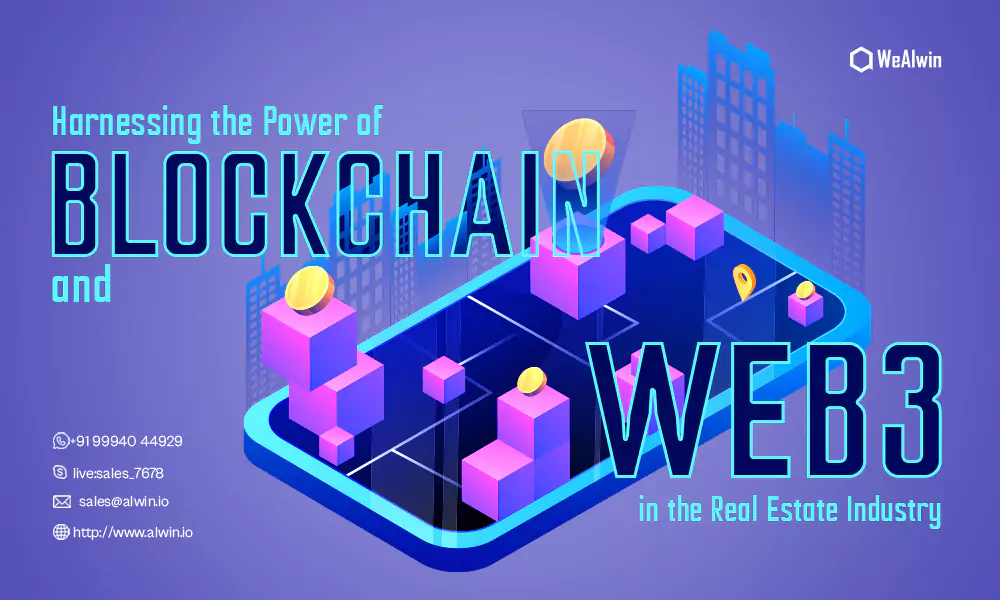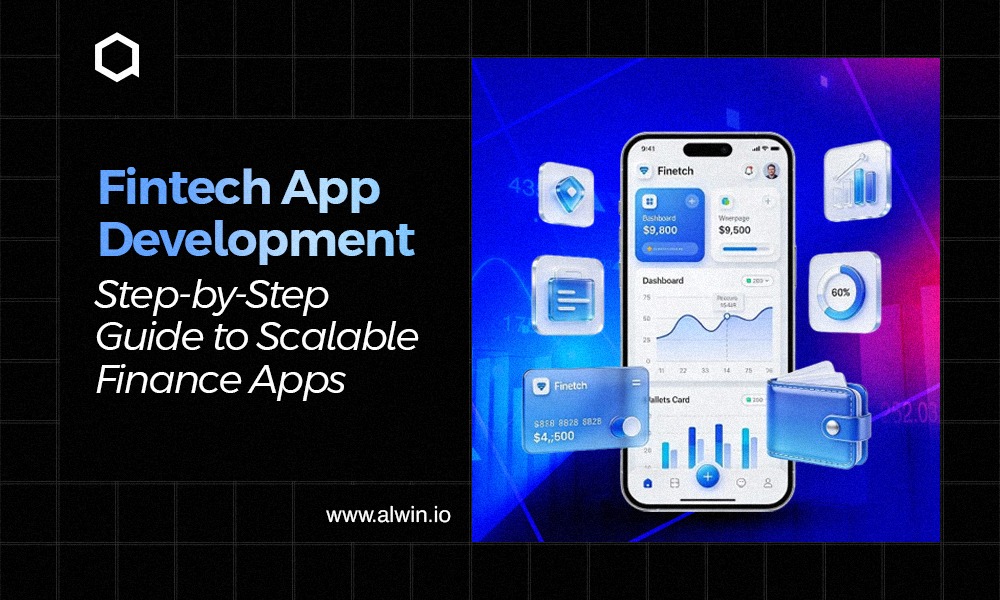The Real Estate industry has been known for a long time for its complex process, have you ever wondered how buying and selling a house can sometimes feel confusing?
Well, there's good news! The real estate industry is undergoing a significant transformation, by adopting the new technology of Web3 and blockchain.
In this article, we will explore the possibilities of Web3 in revolutionizing the real estate sector, highlighting the advantages it offers and the obstacles encountered during the development of Web3-powered real estate applications.
Web3 and Real Estate Industry

Better Efficiency through Smart Contracts
Blockchain-powered Smart Contracts have the potential to automate real estate processes, streamline transactions, reduce costs, and eliminate intermediaries. These self-executing contracts ensure transparency, immutability, and efficiency in property transactions.
By automating tasks such as property transfers, escrow services, and rental agreements, Smart Contracts can save time and resources while reducing the risk of fraud and errors.
Increased Transparency & Integrity
Web3 technology enables the listing of properties on decentralized servers, ensuring transparency and reducing reliance on private real estate companies. Through the blockchain's distributed ledger, property records can be securely stored, verified, and accessed by all relevant parties.
This increased transparency amplifies trust and reduces the likelihood of fraudulent activities, making the real estate market more reliable and efficient.
Accessibility and Liquidity through Asset Tokenization
Web3 technology allows for the tokenization of real estate assets, breaking down traditional barriers to real estate investment. By digitalizing property ownership rights and issuing tokens, fractional ownership becomes possible.
This opens up real estate investment opportunities to a wider range of individuals, including those with limited financial resources. Asset tokenization also facilitates efficient trading and enhances liquidity in the real estate market.
Fractional Ownership
With Web3, users can own a fraction of a property through tokenization.

Fractional ownership enables individuals to invest in high-value properties without the need for large capital funds.
Investors can earn rental income and benefit from property value appreciation proportional to their ownership share. Fractional ownership democratizes real estate investment and provides more opportunities for wealth creation.
Avoiding Middlemen & Cost Reduction
Web3 technology has the potential to remove intermediaries from real estate transactions, reducing fees and accelerating security. By eliminating the need for middlemen such as brokers, lawyers, and escrow agents, transactions can be executed faster and at a lower cost.
Additionally, blockchain's immutability and security features minimize the risk of fraud and manipulation, providing greater peace of mind for all parties involved.
Top Web3 Solutions for Real Estate in 2023
NFT-based Property Ownership
One of the most exciting developments in Web3-Powered Real Estate is the tokenization of real estate assets through Non-Fungible Tokens (NFTs). NFTs represent unique digital assets that can be linked to physical properties.
By creating NFTs for real estate properties, ownership rights can be transferred securely and efficiently. NFT-based property ownership increases liquidity and accessibility in the real estate market.
Smart Contracts for Transaction Automation
Complementing the role of real estate agents, Smart Contracts can automate various aspects of property transactions. These self-executing contracts can handle tasks such as property transfers, rental agreements, and escrow services.

By leveraging Smart Contracts, real estate transactions become more streamlined, transparent, and error-free.
Real Estate Assets Tokenization
Digitally tokenizing real-world assets, such as residential and commercial properties, opens up new opportunities for fractional ownership and global participation in real estate investments. Tokenized assets can be easily traded on blockchain-based platforms, removing geographical barriers and enabling investors around the world to access the real estate market.
Real Estate Marketplaces
Decentralized platforms powered by Web3 Technology can directly connect buyers, sellers, and investors without the need for intermediaries. These platforms facilitate efficient property transactions by leveraging Smart Contracts and asset tokenization.
Real Estate marketplaces built on Web3 offer enhanced transparency, security, and efficiency in property transactions.
Loan and Mortgage Securitization
Web3 technology can digitize loan and mortgage processes through programmable Smart Contracts. By automating loan approval, repayment, and securitization, the accuracy and security of data are improved.
Blockchain-powered loan and mortgage processes maintain updated records, reducing the risk of manual errors and enabling accurate calculations.
Blockchain-Powered Crowdfunding Platforms
Web3-based crowdfunding platforms provide decentralized and transparent alternatives for property funding and investment. These platforms leverage blockchain's immutability and smart contract functionality to enhance transparency, enable efficient risk analysis, and improve fund management.
Blockchain-powered crowdfunding platforms democratize access to real estate investments and increase investor trust.
Cost Considerations for Developing Web3 Solutions in Real Estate
Developing Web3 Solutions for the Real Estate industry involves various cost considerations:
Factors Affecting Development Cost
The complexity of the desired features, integration requirements, scalability needs, and security considerations significantly impact the development cost. Clear project requirements and scope are crucial for accurate cost estimation.
Engaging Models and Hiring Considerations
Deciding whether to build an in-house development team or engage external development agencies should be based on the project's requirements, timeline, and budget.
Maintenance and Ongoing Updates
Web3 Solutions require ongoing maintenance, updates, and security enhancements. Allocating resources for regular maintenance, bug fixes, and future updates should be considered in the overall cost planning.
Conclusion
By harnessing the power of blockchain, smart contracts, and decentralized platforms, Web3 Development is revolutionizing the way we buy, sell, and invest in properties.
With better efficiency through automated processes, increased transparency, and accessibility through asset tokenization, Web3 solutions are transforming the real estate landscape. The removal of intermediaries, reduced costs, and enhanced security further contribute to the appeal of Web3-powered real estate transactions.
By embracing the power of Web3, we can shape a more inclusive, efficient, and secure real estate ecosystem for the future.
Contact our expert team today to explore how you can leverage Web3 solutions to transform your real estate business.



